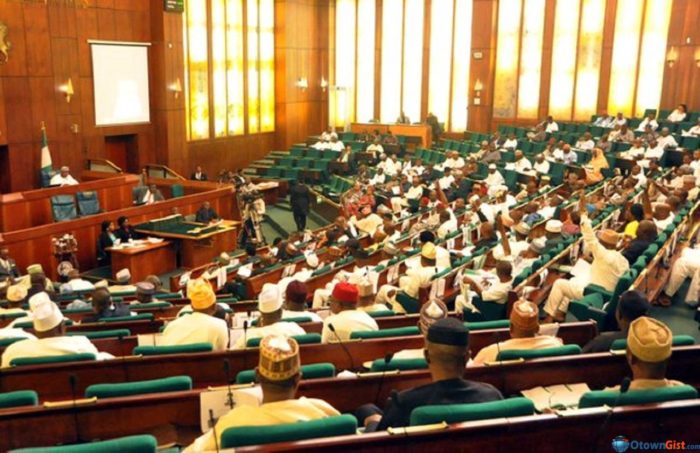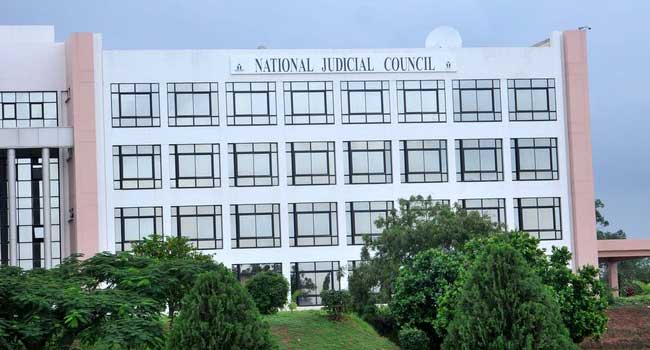A Bill for an Act to amend the Violence Against Persons (Prohibition) Act, 2015 and increase the penalty for the offence of female genital mutilation, Wednesday passed through second reading at the House of Representatives.
Sponsored by Hon. Ganiyu Johnson, the bill pushes for 4-year imprisonment or a fine not exceeding N200,000.00 for any person who practices female genital mutilation or engages another to carry out such circumcision.
Leading the debate at the plenary, the sponsor, Johnson said that section 6(2) of the Act needed to be amended to read thus “6 (2) Any person who performs female circumcision or genital mutilation or engages another to carry out such circumcision or mutilation commits an offence and is liable on conviction to a term of imprisonment not exceeding five years or to a fine not exceeding one million nairas or to both”.
According to him, the new legislation will put a stop to the practice.
“A UNICEF survey recently revealed that in Nigeria, one out of four girls and one out of ten boys suffers from sexual molestation and about one out of ten children will be sexually abused before their 18th birthday. Among the factors that encourage the commission of such unwholesome practices like female genital mutilation is the lack of adequate sanctions. Female genital mutilation, also known as female circumcision, excision or genital cutting, comprises all procedures that involve partial or total removal of the external female genitalia, or other injuries to the genital organs for non-medical reasons, mostly carried out between infancy and age 15.
“The procedure has no health benefits for girls and women. Because it is usually performed without permission and often against will, it violates girls’ right to make important decisions about their sexual and reproductive health. Reports show that 200 million girls and women alive today have undergone a form of genital mutilation (FGM). An additional 2 million girls could undergo female genital mutilation by 2030 as a result of Covid-19. It is for this reason that this Bill is proposed, to review the sanctions provided within the Violence Against Persons (Prohibition), VAPP Act, so as to give it the required deterrence it deserves,” he said
Similarly, the House also passed through second reading a bill for an Act to Amend the Legislative Houses (Powers and Privileges) Act, 2017; and for Related Matters (HB.) sponsored by Speaker, Hon. Femi Gbajabiamila.
Meanwhile, the also resolved to convene a meeting of stakeholders in education management and regulation to consider reviewing the primary and secondary school curricula to integrate anti-corruption awareness courses and programmes.
The resolution followed the consideration of a motion on the “Need to Introduce Anti-corruption Classes and Training into the Primary and Junior Secondary Schools Curricula to Aid in the fight Against Corruption.
The motion was sponsored by Speaker, Hon. Femi Gbajabiamila Hon. Shehu Kakale, Musa Bagos and Hon. Aisha Dukku.
Presenting the motion on behalf of her colleagues, Hon. Dukku said corruption was a scourge with devastating consequences that needed to be tamed.
She said “The various anti-corruption efforts y successive governments have not put an end to corruption in the country.
“Unless drastic measures are taken with utmost urgency, corruption threatens to destroy the fabric of Nigerian society by continuously sabotaging our national sense of right and wrong beyond repair.
“The increase of young people who are growing up in environments where casual subversions of rules and law through acts of private and public corruption have become the norm. Perceived that one reason the fight against corruption has not achieved the desired objectives in the country is the absence of a deliberate national strategy to engage citizens from the early stages of their lives to identify, challenge and defeat corrupt practices wherever they may exist or manifest.
“Confident that this narrative can be changed within a relatively short time, through sustained efforts by government, civil society, religious organizations, and citizens working together to reprogram the way we think about the causes and consequences of corruption in our society.”
Adopting the motion, the House urged its Committees on Basic Education Services and Legislative Compliance to ensure compliance with the resolutions.





